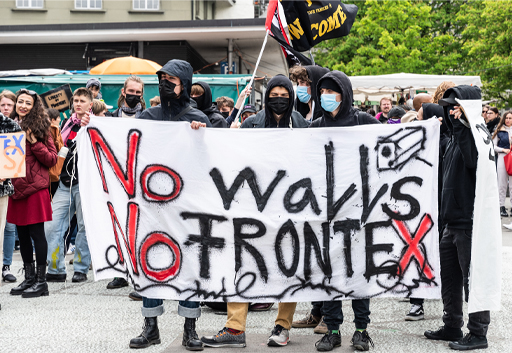4.4 Justice and Lesvos
The principles underpinning justice are those of fairness, equity and access to resources and opportunities. According to Article 13 of the Universal Declaration of Human Rights (United Nations, 1948), (a) ‘everyone has the right to freedom of movement and residence within the borders of each state’, and (b) ‘everyone has the right to leave any country, including his own, and to return to his country’.
‘This questions the legitimacy of European Union institutions in deciding who can move and settle freely in Europe. National interests and security concerns and their translation into border controls that restrict the movement of asylum-seekers are difficult to reconcile with ideas of justice and human rights for all.’

Activity 8: Human rights versus border control
Reflect on the 2016 closure of the Balkan route and the geographical restriction of movement placed on refugees on Lesvos. Does this adhere to equity of treatment for all?
Discussion
Migrants were not allowed to travel to the Greek mainland or to other EU countries once the border control policies were implemented. This suggests that migrants are excluded from the right to move within a state and from the right to leave any country. Not only were they stranded on the island, but they endured overcrowding and poor conditions. There is a gap between the guarantees provided under European and international regulations on migration and human rights, and the application of such agreements to different populations.
The challenge of justice requires asking how we work out what is equitable treatment. Should migrants be allowed to leave Lesvos and go where they wish in Europe? How does this idea tally with national border policies? If they are allowed to leave, what about the impact on others where they settle? If they are not allowed to leave, then why? What counts as fair treatment for the people of Lesvos who must accommodate the refugees and what about the refugees themselves?
